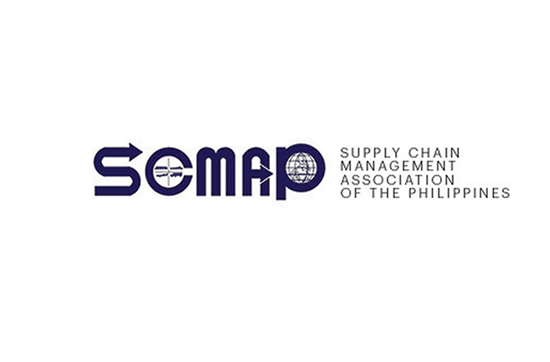This past week, as we continue working on the next issue of our official magazine, Supply Chain Philippines, I wrote about two industry roadmaps that are poised to impact the country’s supply chain sector for years to come. As testament to their importance, both were launched despite the disruption caused by the COVID-19 pandemic—yet another indicator that supply chain will play a key role in economic recovery.
The first, E-Commerce Philippines 2022, is one where SCMAP played a role in, having been involved in several consultations representing the logistics sector. The scope of this roadmap, which was launched by the Department of Trade and Industry last January, is massive. It defines e-commerce as not just the sort you’d experience when there’s a sale on Lazada or Shopee. It goes further. Subscribed to Spotify? Booked a ride via Grab? Bought plane tickets through the Cebu Pacific website? (Those were the days, eh?) All e-commerce. The roadmap recognizes that e-commerce is not just a part of the economy, but the future of the economy, one that’s much closer in sight as we embraced technologies to cope with the pandemic and its accompanying restrictions.
As such, the roadmap’s scope is wide. Its 22 action points include the accelerated implementation of the National Broadband Plan, which envisions a minimum of 20mbps Internet speed for every Filipino household; the passing of the Internet Transactions Act, which affirms protections for consumers engaging in online purchases; the updating of regulations to better facilitate movement of goods; the promotion of e-government to encourage faster processes particularly for new online businesses; and the development of skills to enable businesses to embrace e-commerce and for service providers (including those in the gig economy) to better deliver for stakeholders.
The second, the Philippine Cold Chain Industry Roadmap, is more behind-the-scenes in comparison, but it does not play a lesser role. We have discussed in this column the importance of developing our cold chain capabilities to ensure food security, particularly during disasters. COVID-19 has made it more urgent as we endeavor to distribute vaccines to the general population. The roadmap—spearheaded by the Board of Investments and launched late last year—anticipates continued growth for the sector as demand for food continues to rise—in fact, the increased awareness towards food safety could help drive up demand for cold chain services.
A significant hurdle for the cold chain sector is the heavy investment required to set it up, as well as to operate it, particularly in the context of the Philippines’ high energy costs. As such, the roadmap sets out to foster a favorable investment environment, particularly at the local level. This goes both for cold chain facilities as well as cold chain transport. Also significant are proposals for “proactive collaboration” among stakeholders to ensure consistent demand across the year; at the moment, facilities see a peak during Christmas and are underutilized for most of the year. Another proposal is an education campaign that targets misconceptions towards frozen food and that should also drive up demand.
It’s easy to dismiss these roadmaps as just words on paper, but we have seen that these provide a common direction for government and the private sector as they work together to fulfill their aims. Much like how businesses map out plans to identify their goals for the years ahead, these roadmaps indicate not just what must be done, but also what we intend to see in the future. Also, these roadmaps are a vote of confidence in sectors whose roles in growing the economy and making Filipino lives better cannot be discounted.
In recent months there’s been a lot more talk about resilience, particularly about what it really means, and what it should mean. Personally, I think it’s not right to describe resilience as something that comes innately to people. It’s not a personality trait. Resilience is not standing strong while everything changes around you—sooner or later the forces will be irresistible and you’ll find yourself flailing, not knowing what to do.
Instead, resilience means building plans, systems, processes and measures that will ensure that one becomes personally prepared to be able to weather any storm and, perhaps, come out stronger. Resilience is long-term, rather than something you switch on by pressing a button. Resilience means working with different people towards achieving common goals, aiming for common visions. One hopes the roadmaps released by supply chain stakeholders in the past few months will help realize these along the way.
Henrik Batallones is the marketing and communications director of SCMAP, and editor-in-chief of its official publication, Supply Chain Philippines. More information about SCMAP is available at scmap.org.





